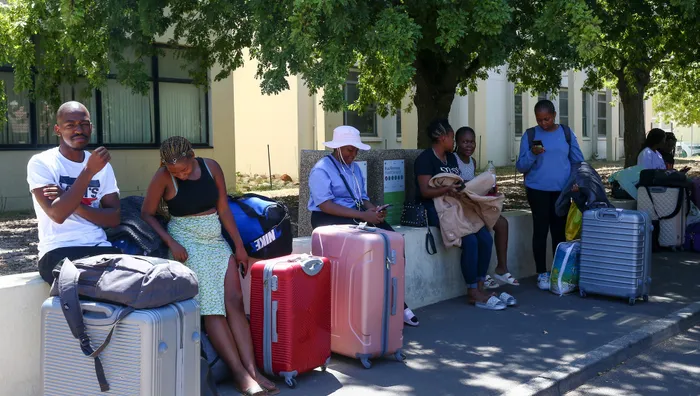Capped rates for NSFAS beneficiaries: what accommodation providers need to know

At this stage, NSFAS says it has capped rates for accommodation.
Image: Leon Lestrade/Independent Newspapers
The National Student Financial Aid Scheme (NSFAS) says accommodation providers are required to adhere to the capped rates should they want to house students supported by it.
The financial aid provider for disadvantaged students says Cape Town itself has a sufficiently conducive student accommodation sector, both in the form of on-campus and privately owned accommodation.
However, NSFAS does say that the Western Cape does have higher property values and rentals than the rest of the country.
The Investors in Units on Cape Station, South African Student Accommodation Impact Investments (SASAII) and the Passenger Rail Agency of South Africa (PRASA) are impact investors who have a drive to produce accommodation of high quality at minimal rentals, says Mandy Gabriels, the property manager at Eris Property Group.
The company says the majority of accommodation targets NSFAS students, supplemented by all other students. The economies of scale in a 3,081-bed building have assisted in keeping rentals low, it says.
Gabriels says the impact of increased utility and operating costs has been mitigated by the systems and processes that are tracked live in the building, minimising the increase in rentals that should have been passed on to students.
“This is enhanced by the Rise management team’s experience, which we have built up in student accommodation over the last 6 years and the management of over 6 000 beds.”
At this stage, NSFAS says it has capped rates for accommodation.
NSFAS told this publication that it is preparing itself from a planning perspective to ensure that there is sufficient safe, conducive accommodation for its students next year.
It says it “It is developed in recognition of the critical role that appropriate living environments play in student well-being, academic success, and retention within the higher education system. This protocol aims to standardise the provision of accommodation support, promote quality and safety, and foster accountability among all stakeholders.”
The financial aid provider says the protocol does not aim to regulate all student accommodation in South Africa, but its intention is to ensure that NSFAS-funded students reside in conducive environments.
Gabriels says the student accommodation landscape in Cape Town is both vibrant and continually evolving, shaped by the city’s dynamic offering of world-class institutions.
She says this attracts a diverse mix of local and international students, resulting in consistently high demand for secure, well-located, and lifestyle-oriented housing options.
“What truly stands out is the shift toward purpose-built student accommodation that prioritises community, convenience, and modern amenities. Students are no longer looking for just a place to stay; they want an environment that supports their academic success and personal growth.
"Cape Town’s unique cultural energy and scenic backdrop amplify this demand for integrated living spaces that combine affordability with a premium experience.”
The property manager at Rise Student Accommodation says they see this as an opportunity to lead the way by delivering spaces that go beyond traditional student housing.
“Our approach focuses on creating vibrant communities where students feel connected, supported, and inspired because we believe accommodation should be more than a room; it should be a foundation for success.”
Gabriels says Rise is preparing for the upcoming academic year by expanding capacity to accommodate all tertiary students in Cape Town, whereas previously they served a limited number of institutions.
She says they continue to work closely with universities, colleges, and key stakeholders to ensure alignment with evolving student needs.
“In addition, our dedicated operations team has a seamless onboarding process, from application and lease signing to the student life programme, ensuring an exceptional experience for every student.”
Independent Media Property
Related Topics: